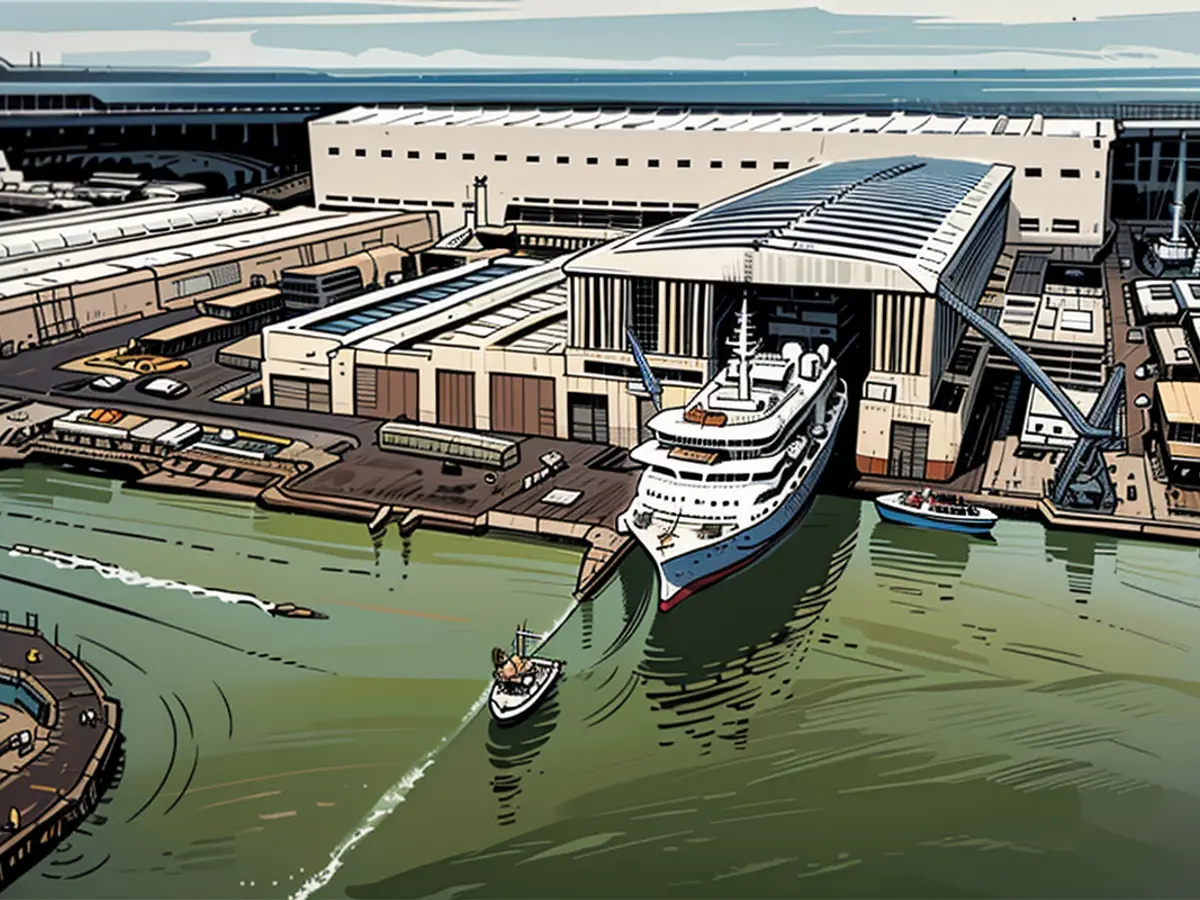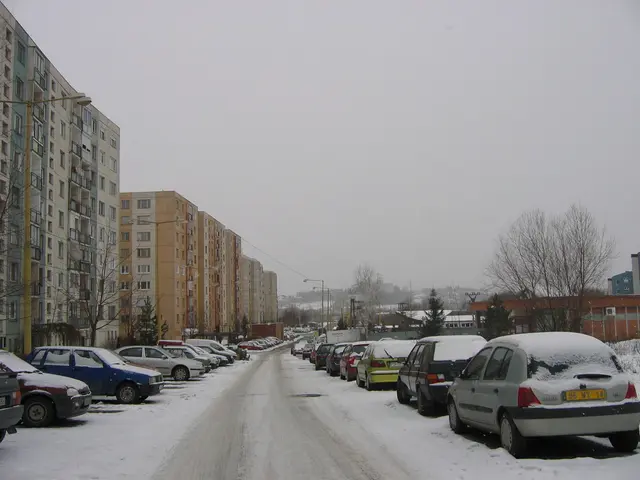A Rollercoaster Ride in Northern German Shipbuilding
The shipbuilding sector in Northern Germany dances between prosperity and hardship, as described by labor committees. Stefan Timm, from the Agency for Structural and Personnel Development, likens the situation to a precarious high-wire act. "We're tip-toeing on the edge between full capacity utilization that could extend up to 2032/2035 for some, while others are left with stagnant order lists," he explains.
The growth in permanent shipyard workers is encouraging, increasing by 5.3% from 15,824 employees in 2024. Some regions, like Bremen, Mecklenburg-Vorpommern, and Lower Saxony, saw a rise of between 7.2% and 7.5%, while others like Hamburg and Schleswig-Holstein experienced modest increases of 5.9% and 1.1%, respectively.
Yet, the optimism is tempered by the lack of orders at some shipyards. Heiko Messerschmidt, IG Metall's representative for shipbuilding, points a finger at FSG-Nobiskrug Holding. "Workers are mowing lawns—and that's not the job they signed up for as shipbuilders," he laments.
Shipyard utilization levels vary greatly, with an average sector-wide figure of 85.9%. While half of the shipyards operate at full capacity, Windhorst shipyards report utilization rates as low as 10% or less. Around 33% anticipate an employment boost within the next year, while 22% fear job cuts.
The proliferation of temporary workers and contract labor is a cause for concern for IG Metall, who view these employment relationships as unstable and poorly regulated.
Skills gap and a historically low training ratio are concerning issues. IG Metall bemoans the low training quota of just 5.2%, with many businesses struggling to fill training slots. Daniel Friedrich, district leader of IG Metall Coast, stresses the industry's essential role in Germany's energy supply, commerce, and security.
As the future of shipbuilding unfolds, IG Metall has expressed concerns about the industry’s mounting challenges, such asHIGH PRODUCTION COSTS, the transition to eco-friendly technologies, and GEOPOLITICAL TENSIONS influenced by Western sanctions and supply chain bottlenecks.
However, opportunities lie ahead for the industry as well. The adoption of SUSTAINABILITY INITIATIVES like the EU Emissions Trading System (ETS) and the inclusion of shipping in it from January 2024 should incentivize operators to invest in low-carbon technologies. FINANCIAL INSTITUTIONS are aligning their portfolios with climate performance under the Poseidon Principles, creating a powerful incentive for shipowners to adopt green technologies.
The German government's plan to take a temporary majority stake in Meyer Werft to secure the company's future and the broader shipbuilding industry, as well as GREEN BONDS and Eco-friendly projects, indicate the government's support for the sector.
It's crucial to maintain Germany's shipbuilding dominance in the European market. The industrial sector accounts for a hefty 26.8% of GDP and employs approximately 27% of the country’s workforce. Despite the challenges, the sector is vital to Germany, playing a key role in its energy supply, commerce, and security, as well as contributing around 19% to the country's GDP through manufacturing activities.
*Read also: * * * *
Insights:
- German ports significantly invest in green technologies, such as shore power facilities and hydrogen-powered cranes, to reduce emissions.
- The industry faces obstacles like SKILL SHORTAGES, high costs, and the need for technological advancements to meet sustainability targets.
- Shipping will be included in the EU ETS from January 2024, incentivizing operators to invest in low-carbon technologies.
- The German government’s support through rescue plans and loans for the shipbuilding industry aims to secure its future.








